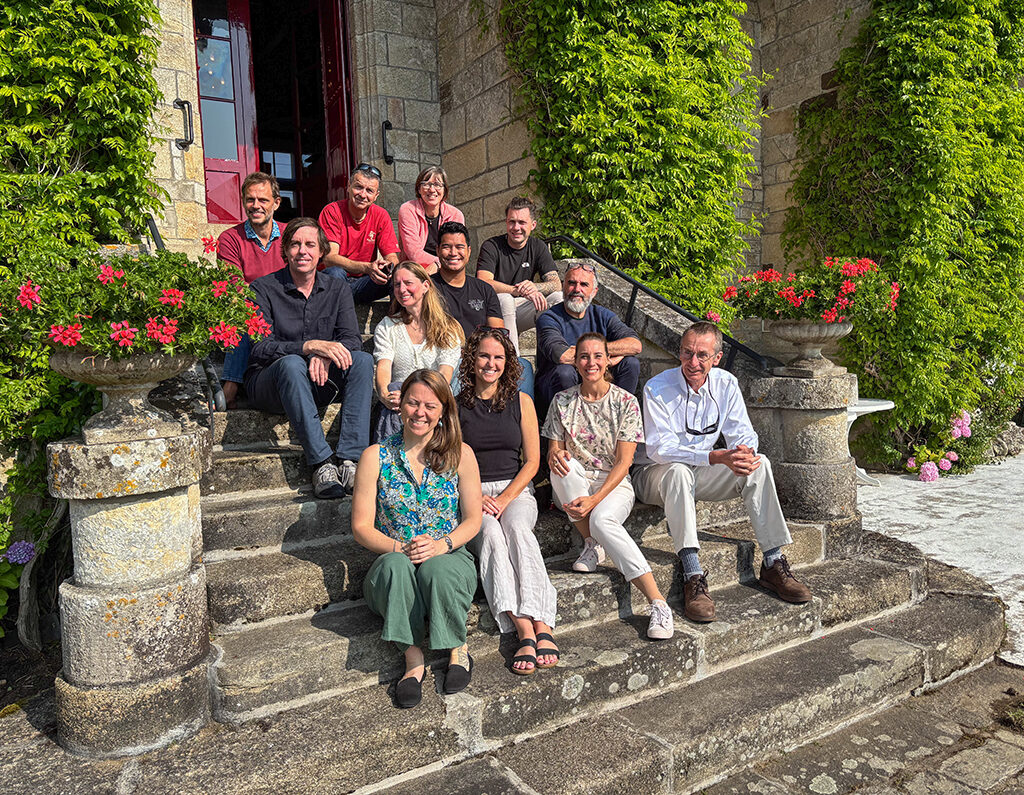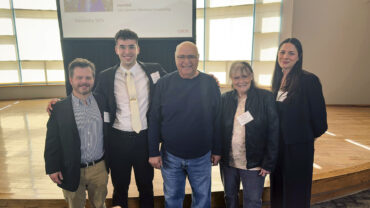
Media Contact: Carmen Ramos Chandler, carmen.chandler@csun.edu, (818) 677-2130
California State University, Northridge marine biologist Peter Edmunds met for nearly a week earlier this summer with his French and US counterparts in a chateau in France to find ways in which they could continue their research on the coral reefs of French Polynesia, and perhaps identify ways to bolster support for scientific research at a time when politics takes precedence over the search for truth.
The solutions, Edmund said the group found, lie in collaboration across borders and disciplines. In the next few weeks, the scientists hope the National Academy of Sciences, a nonprofit, non-governmental organization, will publish their article advocating that “now is the point in human history that collaboration, across borders and disciplines, is needed,” he said.
“Introspection and nationalistic agendas are counterproductive to a global agenda of needed collaboration to solve the major crises that we are all facing right now,” continued Edmunds. “We address that through the prism of the system that we know best, which is coral reefs in French Polynesia. But that argument applies to research across disciplines and countries.”
Edmunds organized the gathering with the help of a grant from the Borchard Foundation Center on International Education, which has a mission to create a bridge between France and the United States through the scholarship and creativity of distinguished individuals involved in cultural, academic and public affairs.
In addition to Edmunds, attendees included Mehdi Adjeroud, a specialist in the ecology of coral reefs with the Institut de Recherche pour le Dévelopment, a science and technology institute jointly overseen by the FrenchMinistries of Higher Education and Research and Foreign Affairs; Lorenzo Bramanti, formerly a post-doctoral researcher in Edmunds’ lab and now a senior researcher with the French National Centre for Scientific Research and based at the Laboratoire d’Ecogeoquimie des Environments Bentiques at the Sorbone marine station; marine ecologist Charlotte Moritz, a consultant at the Institut de Recherche pour le Dévelopment; Maggy Nugues, an associate professor specializing in coral-algal competitive ecology at Ecole Pratique des Hautes Etudes based at the Centre de Recherche Insulaire et Observatoire de l’Environnement; Hollie Putman, a former graduate student at CSUN and now an integrative biologist at the University of Rhode Island specializing in how corals and other marine organisms acclimatize; formerly a CSUN faculty member, marine ecologist Nyssa Silbiger is now an associate director of the Uehiro Center for the Advancement of Oceanography at the University of Hawaii; Kelly Speare, a community ecologist at Arizona State University; and Jean Wencélius, an environmental anthropologist with the Centre de Recherche Insulaire et Observatoire de l’Environnement.
Joining them were graduate students Pierrick Harnay, who is currently working on his doctorate in coral genetic and structural diversity at the University of Haifa, and Keanu Rochette-Yu, originally from French Polynesia and now at the University of Hawaii where he is studying coral reef biochemistry.
Edmunds said the Borchard Foundation was initially hesitant to support the inclusion of graduate students in the colloquium. But once their representatives saw his proposal, they approved is his plan.
“I approached the colloquium with a sort of academic perspective,” Edmunds said. “It was important to try to bring together diverse groups representing diverse cultures and diverse career paths. I intentionally put together a group made up of old geezers like me, mid-career people, post-doctoral people and graduate students. I wanted to get together a full spectrum of people from across the career stage who could brainstorm, share information and bring new perspectives to the discussion.”
Capitalizing on their diverse perspectives and research, Edmunds and his colleagues are spending the next few months collaborating on a paper that will, for the first time, include data both the French and American researchers have collected on the coral reefs in French Mo’orea.
“After all these years, it’s about time we started truly working together,” he said.
Edmunds admitted that, as an American researcher who has been studying the coral reefs in French Mo’orea for decades, he has been frustrated by the lack of opportunities in the past to collaborate with his French counterparts.
“We’re kind of like ships in the night,” he said. “We go there (to French Polynesia, Mo’orea), and they’re not there. They go there, and we’re not there. And then, when you add some of the cultural challenges of working together, the end result is that we have not done enough together. Hopefully, the colloquium and the forthcoming paper will change that.
“Collaboration, across disciplines and borders is important if scientific research, particularly as climate change continues to impact the world, is to advance,” he said.




Comments are closed.